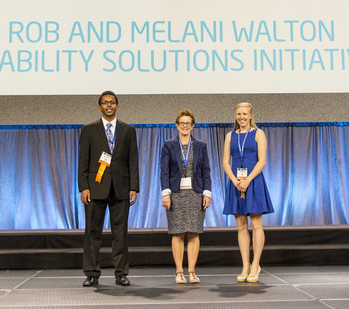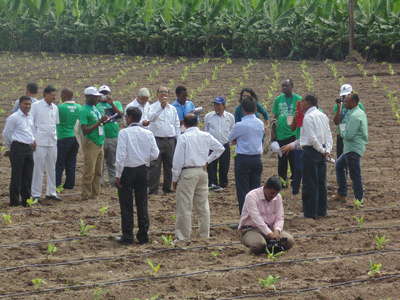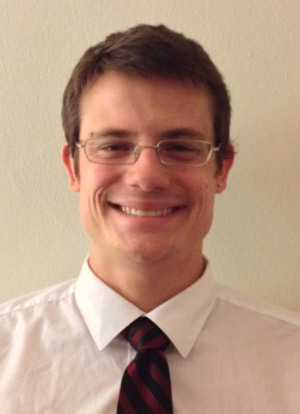City of Phoenix, Arizona State University to Partner on New Regional Resource Innovation Center
Annual savings expected from regional public/private waste reduction collaborative
PHOENIX – The city of Phoenix took another substantial leap forward as a global sustainability leader Tuesday afternoon as its city council gave policy approval of a four year agreement to work with Arizona State University to establish a ground-breaking public/private sustainability incubator focused on converting waste and other resources into economic value.
The Center for Resource Intelligence (CfRI) will be a network of public and private entities that provides a wide array of research, development, education and solution services to more effectively manage resources and create economic value. Industries ranging from energy, water, resource extraction, product development, manufacturing and recycling will collaborate in this effort that city staff project could result in $1-3 million of savings annually.
"This is about turning trash once destined for the landfill into business opportunities and jobs for our community," said Mayor Greg Stanton. "With this effort, Phoenix can lead the way to discover how to reduce our waste in a way that spurs innovation and advances our economy."
CfRI will be managed by the Sustainability Solutions Services (S3), a program within the Rob and Melani Walton Sustainability Solutions Initiatives at ASU’s Global Institute of Sustainability, in collaboration with the city, private sector affiliates and other municipalities and institutions. The city’s investment will initially focus on creating value, economic opportunity and jobs out of waste streams.
"Sustainability is the 'low-hanging fruit' when it comes to identifying new ways to save taxpayer dollars and generate new revenue to run our city," said Vice Mayor Bill Gates, chairman of the City Council Finance, Efficiency, Economy and Sustainability Subcommittee. "This public-private partnership will maximize our efforts by
encouraging green entrepreneurs to bring their businesses and ideas to life right here in Phoenix."
The center will work with various businesses and government entities to address types
of waste streams including food scraps, recyclables and yard waste using a project oriented collaborative model. Center collaborators will be able to introduce and sponsor projects while taking advantage of the knowledge base and synergies present within the CfRI’s network.
"The city of Phoenix is leading the way in supporting green entrepreneurs and reducing our solid waste," said Councilwoman Kate Gallego. "Sustainable businesses are the future of Phoenix."
The CfRI resulted from a series of stakeholder workshops conducted by S3 in collaboration with Phoenix’s Public Works Department to facilitate a regional partnership that will develop technologies and markets and create economic opportunities.
"This seed investment from the city of Phoenix will allow the Center for Resource Intelligence to develop a large network of organizations in the Valley and potentially around the globe that can collaborate to help achieve the levels of resource effectiveness required for 9 billion people to live well on the planet by 2050," said Dan O’Neill, general manager for S3. "We appreciate the leadership of John Trujillo and the team in the city’s Public Works Department for having the vision to find solutions to our Valley’s – and planet’s – sustainability challenges."
City staff estimates an additional 10 to 25 percent diversion of solid waste from landfill to other uses through the research and development of the CfRI and partnerships with the private sector.
The Rob and Melani Walton Sustainability Solutions Initiatives are the result of a $27.5 million investment in Arizona State University’s Global Institute of Sustainability by the Walton Family Foundation. Within the Walton Sustainability Solutions Initiatives, diverse teams of faculty, students, entrepreneurs, researchers, and innovators collaborate to deliver sustainability solutions, accelerate global impact, and inspire future leaders through eight distinct initiatives. For more information visit sustainabilitysolutions.asu.edu.
MEDIA CONTACTS:
ASU Walton Sustainability Solutions Initiatives
Jason Franz, 480-727-4072
City of Phoenix
Yvette Roeder, 602-495-0189





 Thousands of chemicals serving a variety of human needs flood into sewage treatment plants once their use life has ended. Many belong to a class of chemicals known as CECs (chemicals of emerging concern), which may pose risks to both human and environmental health.
Thousands of chemicals serving a variety of human needs flood into sewage treatment plants once their use life has ended. Many belong to a class of chemicals known as CECs (chemicals of emerging concern), which may pose risks to both human and environmental health.



 The modern agriculture system that feeds most of the world’s population relies in large part on phosphorus, a chemical element that is mined from a small number of ancient seabed locations around the world. Phosphorus (in the form of the compound phosphate) is an essential ingredient in fertilizer and is critical for food systems worldwide, but about 75 percent of it is mined and exported from just one country – Morocco.
The modern agriculture system that feeds most of the world’s population relies in large part on phosphorus, a chemical element that is mined from a small number of ancient seabed locations around the world. Phosphorus (in the form of the compound phosphate) is an essential ingredient in fertilizer and is critical for food systems worldwide, but about 75 percent of it is mined and exported from just one country – Morocco.
 In partnership with the GreenBiz Group and The Sustainability Consortium, Arizona State University's
In partnership with the GreenBiz Group and The Sustainability Consortium, Arizona State University's 
 School of Sustainability
School of Sustainability 




 The second
The second  Rud Moe, a 2013 School of Sustainability graduate, is now the hospital sustainability specialist for Stericycle. Using the knowledge he gained while at ASU, Moe advises Stericycle on how they can promote less wasteful medical practices at hospitals.
Rud Moe, a 2013 School of Sustainability graduate, is now the hospital sustainability specialist for Stericycle. Using the knowledge he gained while at ASU, Moe advises Stericycle on how they can promote less wasteful medical practices at hospitals.
